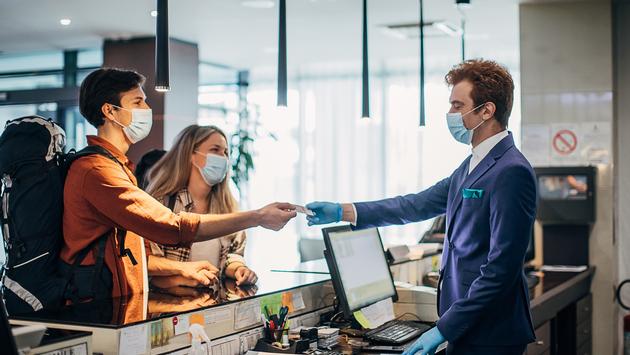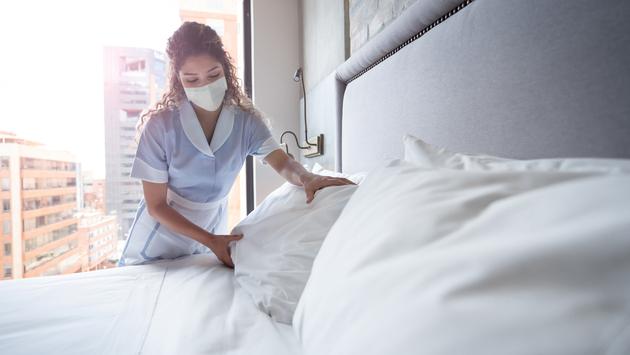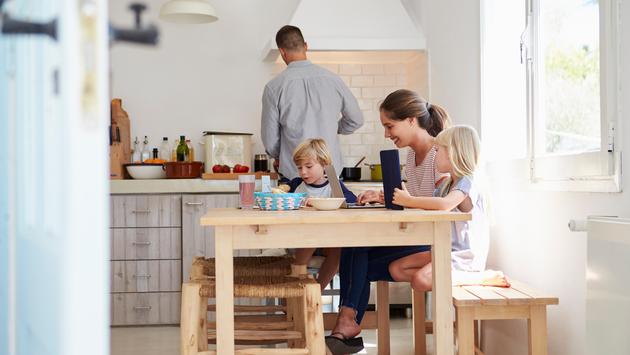Many Americans Have Stayed in Hotels or Vacation Rentals During the Pandemic

A recent ValuePenguin study has revealed that, despite continued CDC warnings against travel, 54 percent of Americans have stayed in a hotel or vacation rental since the COVID-19 pandemic began.
The study surveyed over 1,000 Americans at the end of September, with the sample base proportioned to represent the overall U.S. population.
Generational Split
Gen X-ers (defined here as those aged 44 – 55) appeared to be making the most reservations, and 70 percent of them had already stayed in a homeshare rental since March, as compared to 50 percent of Millennials (25 – 43) and only eight percent of Baby Boomers (56 – 74). Seventy-five percent of Gen X-ers had also stayed in hotels since March, whereas only 60 percent of Millennials and 19 percent of Boomers said the same.
One hypothesis that might explain this breakdown is that older adults are staying home because they’re at higher risk for COVID-19 complications if they fall ill, while Millennials may wish to travel, but might not be able to spare the funds to do so. Earlier this year, a Transamerica Center study discovered that Millennials are more likely to report difficulty making ends meet than either of the two generations immediately ahead of them.
Perceptions About Safety
People’s perceptions about which types of accommodations are safest seem to differ generationally, though folks of all ages are making reservations. Baby Boomers proved more likely to point to hotels as the safe options, while a majority of Millennials and Gen X-ers (44 – 55) believe Airbnbs to be the safer choice.
Twenty-one percent of all survey-takers said they believe Airbnbs and hotels are equally safe. Another 34 percent remain undecided about whether one is safer than the other, which is pretty fair, considering that information about the virus and proper precautions can change daily.
Of those who said Airbnbs were safer, 57 percent said it was because private vacation rentals hold less potential for interaction with others than hotel properties. Another 42 percent said it was because Airbnbs can be booked in remote locations, while 23 percent believe short-term rentals are cleaner than hotels. Thirteen percent appreciated that they could communicate directly with Airbnb hosts about cleanliness standards.
Among those that considered hotels the safer option, 57 percent cited the fact that hotels have more sanitation, hygiene and social-distancing regulations than home rentals. Forty-six percent said they trusted hotel brands more, with 40 percent holding that hotels are just cleaner on the whole.

Pandemic-Era Accommodations
Half of the respondents had stayed in a hotel at some point since March, while 41 percent reported having stayed in an Airbnb-type vacation rental. Oddly, only 10 percent said that they consider hotels to be the safer option amid COVID, 35 percent said the same of short-term rentals.
Somewhat shockingly, among those who’d rented Airbnbs, only 16 percent had stayed there by themselves without the host present. Far more (50 percent) stayed in the same house as their host, but used a separate entrance, and 34 percent reported staying in the house with their host without even a separate entrance.
Yet, the majority (86 percent) of those who stayed in Airbnbs or vacation rentals amid the pandemic said that they took safety precautions. Thirty-eight percent of them reported that they wiped down surfaces upon their arrival and 30 percent said they’d opened windows to circulate air.

Planned Future Travel
When it came to their future plans, 22 percent of those surveyed said they’ve already booked travel that involves staying at some type of homeshare rental property within the next six months. Another 14 percent said they plan to do the same but haven’t made their bookings yet.
Twenty-five percent of Americans haven’t solidified their plans just yet but would consider staying in an Airbnb or homeshare. Thirty-nine percent answered that they neither plan on staying in a homeshare, nor would they consider it.
In keeping with trends observed earlier, Gen X-ers (67 percent) and Millennials (44 percent) revealed themselves to be more likely than Baby Boomers (six percent) to have planned stays at vacation rental properties over the next six months.
